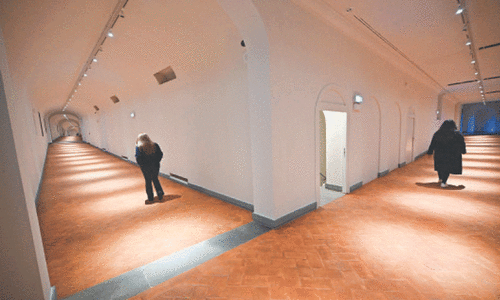DHAKA: The government of Bangladesh set up an anti- corruption commission, almost a year ago, to curb corrupt practices and to speed up disposal of corruption cases.
But the commission is yet to be able to start functioning, thanks to the government’s failure to approve the proposed organogram to staff the institution in the first place.
Meanwhile, the fate of over 5,000 graft cases, registered with the now-defunct bureau of anti-corruption, remains undecided reportedly because of the legal ambiguity as to whether the responsibility to conduct those cases falls under jurisdiction of the newly formed anti-corruption commission or not.
Notably, a good number of the 5,000 cases involve politicians including former ministers, government functionaries, and top-level businessmen.
The commission, a three-member body headed by Justice Sultan Hossain Khan, a former judge of the Supreme Court of Bangladesh, came into existence on November 21 last year. The commission was created under a law — The Anti-Corruption Commission Act -— which was enacted on February 17 last year, after the Berlin-based Transparency International adjudged Bangladesh the most corrupt country of the world for the last four consecutive years.
Despite certain criticism, the civil society seemed happy with the creation of the commission, particularly because it has no obligation to get a nod from anybody to investigate any person or to prosecute any person on graft charges. The Bureau of Anti-Corruption (BAC), which ceased to exist with the creation of the Anti-Corruption Commission, required the approval of the prime minister to probe into the allegations of corruptions against ministers as well as top civil and military bureaucrats.
However, the law creating the anti-corruption commission said that the pending inquires and investigations by the defunct BAC would be conducted by the ACC, but did not say anything about the conduct of the ‘under-trial corruption cases’.
To overcome the problem, the commission in May this year wrote a letter to the government’s cabinet division seeking ‘advice’ in this regard. He also stated in the letter that it would have been better if it was clearly mentioned in the law that the commission would deal with the under-trial cases. The cabinet division referred the issue to the law ministry.
In reply to the letter, the solicitor wing of the ministry of law issued a letter dated June 26 giving their opinion. In the letter the law ministry acknowledged the lack of clarity in the law.
The law ministry admitted that the anti-corruption commission law assigned the commission to deal with cases to be lodged with the commission by its own prosecution unit comprising necessary number of prosecutors. “But nothing was clearly mentioned as regards the previous cases.”
The ministry, then, suggested that the government could clarify this matter through a gazette notification.
Having had the opinion from the ministry of law, the cabinet division informed the ACC on July 25 that arrangements could be made to conduct the cases only after the formation of the commission’s own prosecution unit.














































Dear visitor, the comments section is undergoing an overhaul and will return soon.